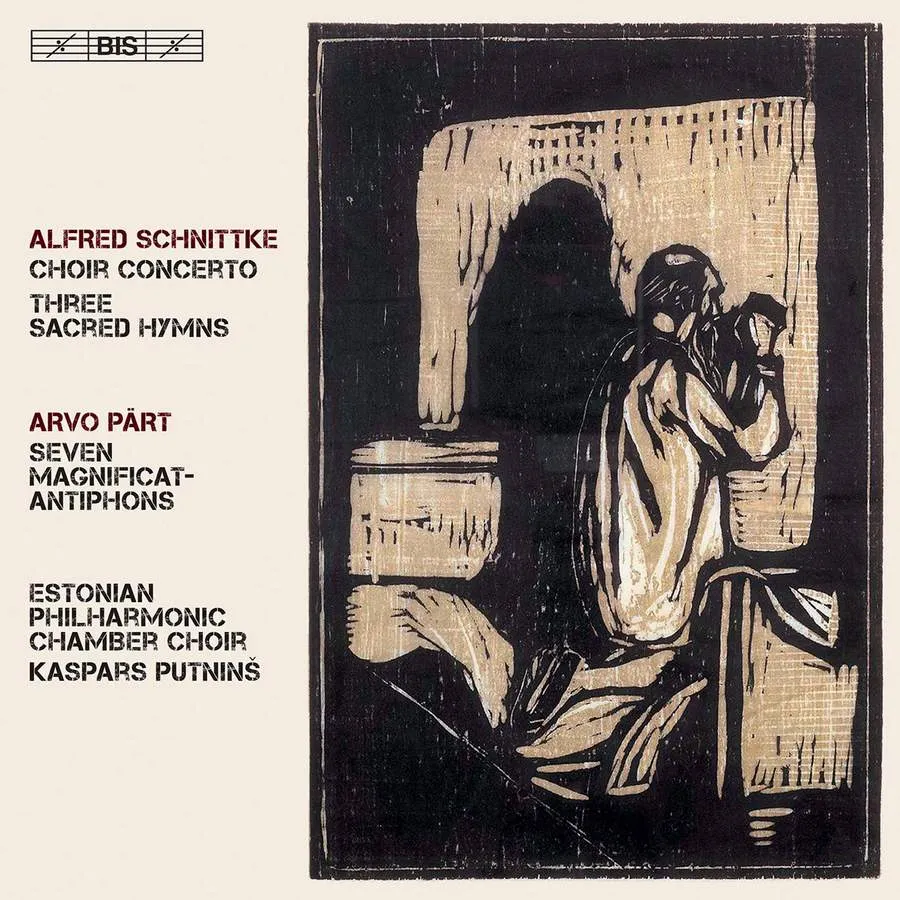
Arvo Pärt • Schnittke Arvo Pärt: Seven Magnificat Antiphons; Schnittke: Concerto for Choir; Three Sacred Hymns Estonian Philharmonic Chamber Choir/Kaspars Putniņš BIS BIS-2521 (CD/SACD) 60:22 mins
In 2017 the Estonian Philharmonic Chamber Choir and Kaspars Putniņš assembled in Tallinn’s lofty Niguliste Church to record a disc of Schnittke and Arvo Pärt. Three years on, savouring the same spacious acoustic they reconvened to revisit the pairing: this time setting Schnittke’s large-scale Choir Concerto alongside Pärt’s Seven Magnificat Antiphons. Both are works of the 1980s; both written in the slipstream of their composers’ conversion to the Orthodox faith – though, composed for Berlin’s crack RIAS Chamber Choir, the Pärt proves decidedly ecumenical, setting Roman Catholic Marian texts in German. And, cloaked in his crystalline ‘tintinnabuli’ style, it stands some distance from Schnittke’s unapologetically voluptuous choral writing – the second movement of the Concerto swelling to a 17-part climax.
BIS already boasts a fine version of the Concerto recorded by Tõnu Kaljuste and the Swedish Radio Choir two decades ago. But the newcomer surpasses it; and the music of Pärt is stitched into the choir’s DNA (even if the Tallis Scholars have demonstrated that in the Antiphons a leaner approach can offer a compelling alternative vision). The Niguliste’s acoustic is Putniņš’s trump card, further nourishing the choir’s enveloping sonorousness – which he expertly contours to explore Schnittke’s subtlety and ear for choral colour. The billowing sound-surges always husband shape and purpose, and for all its monumentality the first movement is kept on the move. Carefully plotted, the ending of the fourth winds down to heart-stopping effect. The Three Sacred Hymns, by way of postscript, are just as affectingly direct.
Paul Riley